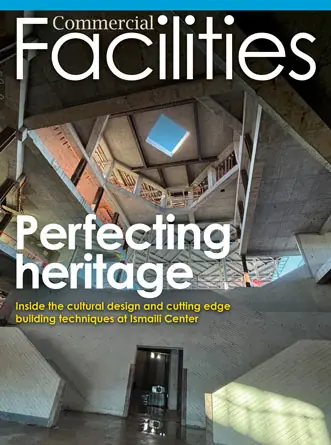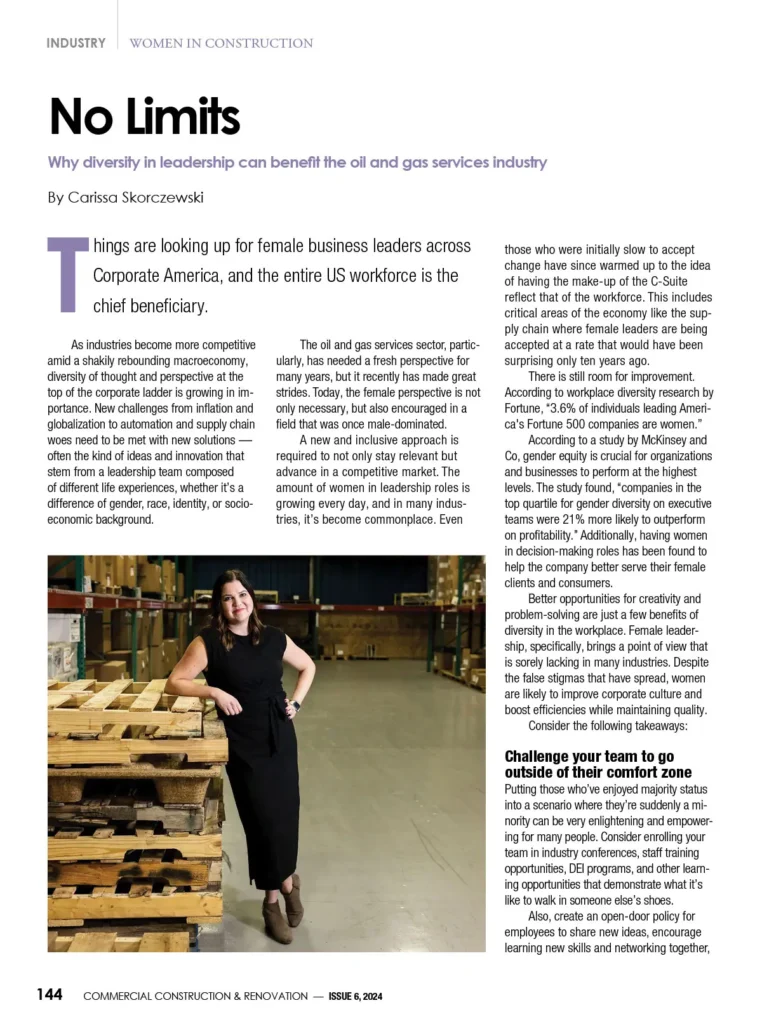In the realm of transportation, safety innovation is at the forefront of mobility advancements. Toyota, a pioneer in automotive technology, continuously develops cutting-edge safety features that aim to shape the future of transportation.
These practical and advanced technologies focus on preventing accidents and making journeys more enjoyable and convenient for drivers and passengers alike.
The Vision Behind Toyota’s Innovation
Toyota’s advanced technologies in safety are centered around enhancing mobility for everyone. They strongly focus on real-world applications that contribute positively to society and the environment.
One of the critical aspects of Toyota’s vision is the Mobility Teammate Concept, which emphasizes the development of intelligent systems that enable cars to communicate, learn, and assist drivers as they navigate complex driving situations.
The Mobility Teammate Concept facilitates seamless interactions between humans, vehicles, and their surroundings. This innovative approach by Toyota aims to create technologies that predict and prevent accidents, mitigate traffic congestion, promote energy efficiency, and ultimately make driving a more enjoyable experience for users.
Toyota’s commitment to safety has led to breakthroughs in advanced safety technologies such as adaptive cruise control, lane departure warning systems, and pre-collision systems. These innovations offer enhanced driving comfort and convenience and work together to minimize the risks associated with driving.
Overview of Advanced Technologies
Toyota is making strides in transportation by developing innovative safety technologies. One such system is Toyota Safety Sense™, which incorporates various active safety features to protect drivers and passengers on the road.
With the help of artificial intelligence and deep machine learning, Toyota focuses on automated systems like Teammate technology to enhance overall vehicle performance.
Key aspects include advanced steering and braking capabilities, allowing vehicles to adapt to different travel scenarios. This technological integration helps to reduce the likelihood of accidents and improve road safety.
In-Depth: Lexus LS and Its Advanced Safety Features
The Lexus LS, specifically the Lexus LS 500h, is a prime example of Toyota’s commitment to innovating safety in transportation. This luxury sedan showcases Advanced Drive, a cutting-edge driver assistance technology designed to enhance safety for drivers and pedestrians.
Safety features in the Lexus LS are optimized with several groundbreaking components, such as pre-collision warning and automatic braking. Lexus balances these advanced safety measures with the utmost sophistication, ensuring seamless integration with the driving experience.
The Lexus LS offers Advanced Park, an unparalleled parking assistance system for those concerned with parking safety. The innovative technology automatically steers, accelerates, and brakes making parking smoother and less stressful for drivers. The Lexus LS truly embodies the future of safe and efficient transportation.
Toyota Motor Co in Japan
Toyota Motor Corporation, a leading automobile manufacturer in Japan, continuously innovates vehicle safety technologies.
With a strong focus on accident prevention and passenger protection, Toyota aims to reduce traffic fatalities and enhance mobility for older adults.
Recently, Toyota unveiled new technologies that will change the future of cars. These advancements demonstrate their commitment to shaping the future of transportation while staying true to their roots in Japan. Their efforts in developing cutting-edge safety features make them an industry leader, benefitting millions of drivers worldwide.
Sensor Technology in Toyota Vehicles
Toyota’s vehicles utilize advanced sensor technology to enhance safety and performance. These sensors are crucial in detecting the environment and maintaining a safe distance from other vehicles.
One such technology is LIDAR, which uses laser beams to measure distances and accurately generate detailed maps of the surroundings. Additionally, vehicles are equipped with radar sensors to monitor their proximity to other vehicles, preventing collisions and ensuring smoother navigation.
Communications and Navigation Systems
Toyota is continuously working on enhancing its in-car communication and navigation systems. They have introduced a next-generation multimedia system that offers more giant touchscreens (up to 14 inches) and 100% cloud-based navigation for more accurate and faster directions.
The company’s commitment to safety is also reflected in its Next Generation Safety Connect, which uses the Connected Mobility Intelligence platform to improve telematics services. Furthermore, Toyota is exploring the potential of artificial intelligence (AI) in automated driving for various applications.
To ensure safety while driving, Toyota features hands-free navigation and calling integrated into their vehicles, allowing drivers to stay connected without compromising their attention on the road.
This commitment to advancing communication and navigation systems demonstrates Toyota’s dedication to providing the best experience for its drivers.
Understanding Automated Driving
Automated driving is a rapidly evolving technology striving to create safer, more efficient transportation systems.
Toyota aims to reduce traffic fatalities and improve mobility for the elderly and disabled through this innovation. Driver assistance systems, or ADAS, play a significant role in this mission.
ADAS technologies include features like lane departure warnings and collision avoidance systems, enhancing road safety. Toyota continues to innovate by developing its advanced driving systems, working towards zero traffic deaths.
With the fusion of human expertise and technology, the future of transportation is becoming increasingly friendly and secure.
Active Driving and Safety Measures
Toyota’s Advanced Technologies are revolutionizing the future of transportation through innovative safety measures. Their Toyota Advanced Drive focuses on developing intelligent, reliable, and wise driving systems.
Active driving features include seamless merging, lane-changing with precision, and protecting road users. By prioritizing safety for everyone on the highways, these initiatives aim to reduce accidents for a more secure driving experience.
Such active safety systems also have the potential to reduce the impact of collisions if they cannot be entirely avoided. Embracing these measures, Toyota creates a safer, more connected, and enhanced driving experience.
Analyzing Performance and Safety Statistics
Toyota’s advanced technologies aim to shape the future of transportation by improving vehicle performance and reducing accidents and traffic fatalities. By leveraging data analytics and innovative safety solutions, Toyota seeks to enhance the driving experience and minimize risks on the road.
Organizations can identify factors that drive workplace safety through predictive modeling techniques and apply them to transportation safety. Automakers like Toyota can make informed decisions on allocating resources for better safety outcomes by collecting and analyzing safety data.
Improvements in vehicle performance can directly contribute to safer roads. Advancements in braking systems, stability control, and collision avoidance technology help prevent accidents, ultimately reducing traffic fatalities.
Data Privacy and Security
Toyota Motor North America is dedicated to consumer privacy and introduced the Toyota Data Privacy Portal in June 2021. The portal aims to increase data transparency, accessibility, and control for Toyota and Lexus vehicle owners.
Additionally, the company’s Toyota Connected North America unit leads the development of their cloud-based digital Connected Mobility Intelligence Platform. The platform creates a secure environment for data-driven services, focusing on mobility, safety, and convenience innovations.
The Future of Transportation
Innovative safety technologies are playing a significant role in shaping the future of transportation. Toyota, for instance, is working on advanced systems designed to improve driver assistance and create a more seamless human-machine interface.
One such innovation is Toyota’s Mirai, designed with precision and safety in mind. This vehicle relies on advanced driver assistance systems (ADAS) that enable efficient, hands-free driving, particularly on expressways.
Furthermore, integrating Artificial General Intelligence (AGI) into future vehicles will revolutionize how drivers interact with their cars, enhancing safety by reducing human error.
How do Toyota’s innovations impact accident reduction?
Toyota is dedicated to improving safety on the roads. Their innovations and research, such as the work done at the Toyota Research Institute, contribute significantly to accident reduction.
Innovations like the development of autonomous technologies allow vehicles to maneuver around obstacles, preventing crashes. Moreover, adaptive headlights increase visibility and communication between vehicles and pedestrians, making the roads safer.
With a focus on real-world safety, Toyota continues developing and deploying advanced technologies, driving growth and positively impacting transportation safety.
How does Toyota’s safety strategy compare to competitors like Waymo?
Toyota focuses on improving safety through advanced technology and innovations, aiming to reduce human-driven traffic fatalities and provide mobility for older people.
Their commitment to health and safety is reflected in continuous improvement, daily management meetings, and a group-wide culture of safety awareness.
Waymo, on the other hand, emphasizes data-driven processes and leverages its extensive data to develop a sophisticated and safe autonomous driving system. They also claim that the Waymo Driver is already reducing traffic injuries and fatalities in areas where they operate.
What can we expect from Toyota’s autonomous vehicles in the future?
Toyota is making strides in developing autonomous vehicles to enhance safety and offer mobility options for various segments of society. By 2025, Toyota plans to launch an operating system that will handle self-driving tasks, challenging industry giants like Volkswagen and Daimler.
In line with its Automated Driving program, Toyota aims to reduce the million human-driven traffic fatalities worldwide each year and provide mobility for older people who face challenges driving.
Not only does Toyota focus on the more considerable benefits, but it also makes self-driving technology cost-effective, using Tesla’s approach of integrating low-cost cameras to advance self-driving capabilities.
Most recently, Toyota has combined autonomous technology with Mobility-as-a-Service (MaaS), converting 2022 Sienna minivans into platforms compatible with third-party autonomous driving kits and sensors for use in MaaS applications.
The Key Takeaway
Toyota has been investing heavily in advanced technologies to shape the future of transportation. With a strong focus on safety, the automaker has developed cutting-edge driver assistance systems, such as Toyota Safety Sense and Lexus Safety System+.
These systems include crucial automated driving components like Automatic Emergency Braking to reduce the likelihood of crashes.
Additionally, Toyota entered into a voluntary agreement with the National Highway Transportation Safety Administration in 2016, committing to include this essential safety technology in over 95% of their vehicles.
Furthermore, the company has renewed its investment in the Collaborative Safety Research Center, dedicating $30 million to advance safety innovations through open partnerships with universities, hospitals, and other institutions.








 The 2024 virtual Men’s Round Table will be held Q4, 2024, date TBD.
The 2024 virtual Men’s Round Table will be held Q4, 2024, date TBD.












